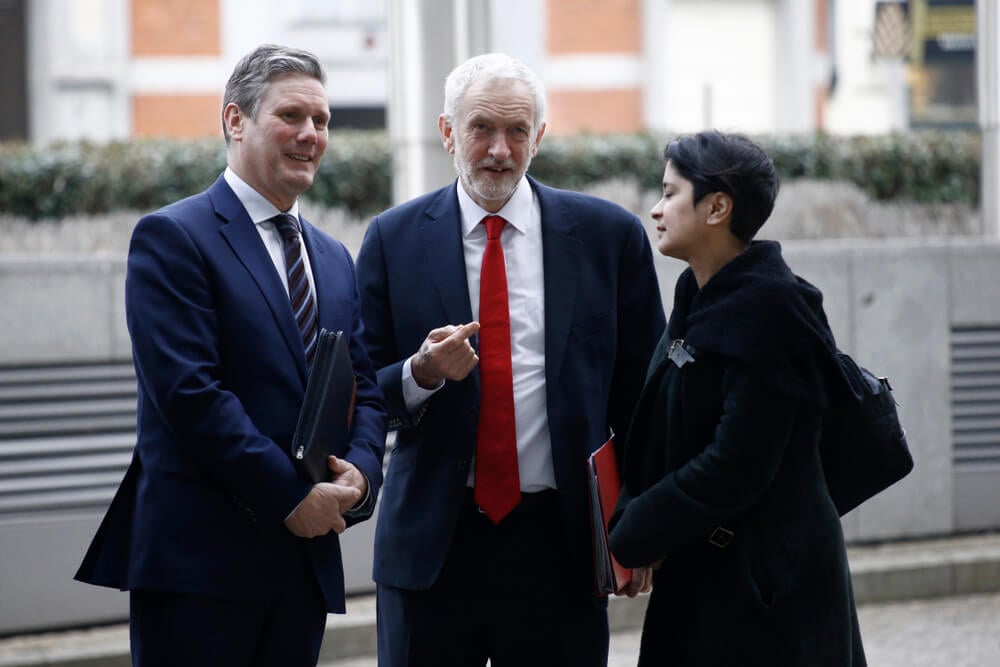With Prime Minister Rishi Sunak yet to fire the starting gun on a UK general election, campaigning is effectively already under way for what is shaping up to be the most overdue and also least inspiring contest of recent history.
After 14 years in power under five prime ministers, the governing Conservatives are widely seen, including within the party, as having reached the end of the road.
Along with a number of high-profile defections, more than 60 Conservative MPs have announced they will not stand for re-election. Local elections at the start of this month confirmed a nationwide shift to the opposition Labour party, which has been consistently ahead in opinion polls.
Faced with what many supporters of the governing party now regard as its inevitable defeat, rebel Conservative MPs have abandoned plans to replace Sunak, while he continues to gamble on a last-minute switch in the party’s fortunes rather than go for an early snap election.
By opting for a late-autumn vote, he would still have time to schedule a tax-cutting mini-budget that might sway voters ahead of polling day. The problem is that the benefits of any tax breaks will have little time to filter through to a skeptical public.
For now, Sunak has chosen to kick-start his party’s unofficial election campaign by challenging the ability of his Labour rival, Keir Starmer, to keep the country safe in the face of growing international threats. It is a tactic that offers limited mileage to influence significant numbers of voters.
Policy of not over-promising
Starmer has meanwhile cleaved to a policy of not over-promising, and even of scaling back previous pledges that might break the reformed Labour party’s tight fiscal rules.
No single outcome is inevitable whenever the election might be called. But with present trends so firmly in Starmer’s favour, attention has switched from whether the Conservatives can miraculously save the day towards how a future Labour government might reverse the country’s fortunes.
Outlining his priorities this month, the Labour leader listed six first steps that reflected the public’s priorities as expressed in opinion polls, topped by the state of the economy, public health and immigration.
His broad commitment to deliver economic stability was qualified by a pledge that this would be undertaken within tough spending rules in order to generate growth while keeping taxes, inflation and mortgage costs as low as possible.
The Conservative government has already scored an own goal with its so far unfulfilled commitment to send asylum seekers to Rwanda
On the key electoral issue of tackling the crisis in the National Health Service, Labour has promised to cut waiting times for treatment, although its strategy appears to focus on encouraging medical staff to work out of normal hours rather than on any major new investment.
On immigration, the Conservative government has already scored an own goal with its so far unfulfilled commitment to send asylum seekers to Rwanda. Labour has said it would target the problem of small boats bringing would-be immigrants across the Channel by beefing up measures against people-smugglers.
Starmer’s challenge
Starmer’s challenge, should Labour be elected, is that a dispirited electorate appears to be unconvinced that the party would be able to deliver a quick fix to these and other problems confronting the country.
Labour’s poll lead is more linked to widespread dissatisfaction with the Conservatives than with positive enthusiasm for the alternative. Unusually for a prime minister-in-waiting, Starmer’s popularity rating remains firmly in negative territory, albeit not as low as Sunak’s.
Starmer would be entering Downing Street at a time when the public’s main preoccupation is to halt any further slide in the face of a stagnating economy
It is not simply a question of the former lawyer and director of public prosecutions being an unknown quantity after four years as leader of the opposition. The same could have been said of Tony Blair in 1997 or of Harold Wilson, who became prime minister less than two years after assuming leadership of the Labour party in 1963.
Both the latter took office amid varying degrees of public enthusiasm that their arrival heralded positive change, both on the economy and social issues.
Starmer would be entering Downing Street at a time when the public’s main preoccupation is to halt any further slide in the face of a stagnating economy, high cost of living and a decline in the level of public services.
Bolder action plan for change
While most voters may now share a belief in the near inevitability of a Labour victory, polls and vox pops provide little evidence that they anticipate fundamental change anytime soon.
Starmer has done much to revive the fortunes of his party, and to put it on the brink of power only three and a half years after what was, by some measures, its worst general election defeat since 1935.
 Starmer has marginalised the left to the extent of excluding former party leader Jeremy Corbyn as a Labour candidate in the next election
Starmer has marginalised the left to the extent of excluding former party leader Jeremy Corbyn as a Labour candidate in the next election
He has marginalised the left to the extent of excluding former party leader Jeremy Corbyn as a Labour candidate in the next election.
If Starmer is elected, he will be severly constrained by weak public finances if Labour is to stick to its fiscal rules. He would quickly come under pressure, not only from the general public but also from his own currently muted left, to deliver on his already modest promises.
Labour presently has enough support to carry it to power, but does it have the tools and the talents to stay there?
Starmer should perhaps consider a bolder action plan for change, which might include specific measures to reduce inequalities, such as growing child poverty. Combined with more ambitious goals to use public investment to revive the economy, that might be the best guarantee of surviving a first term - or even making it to a second.